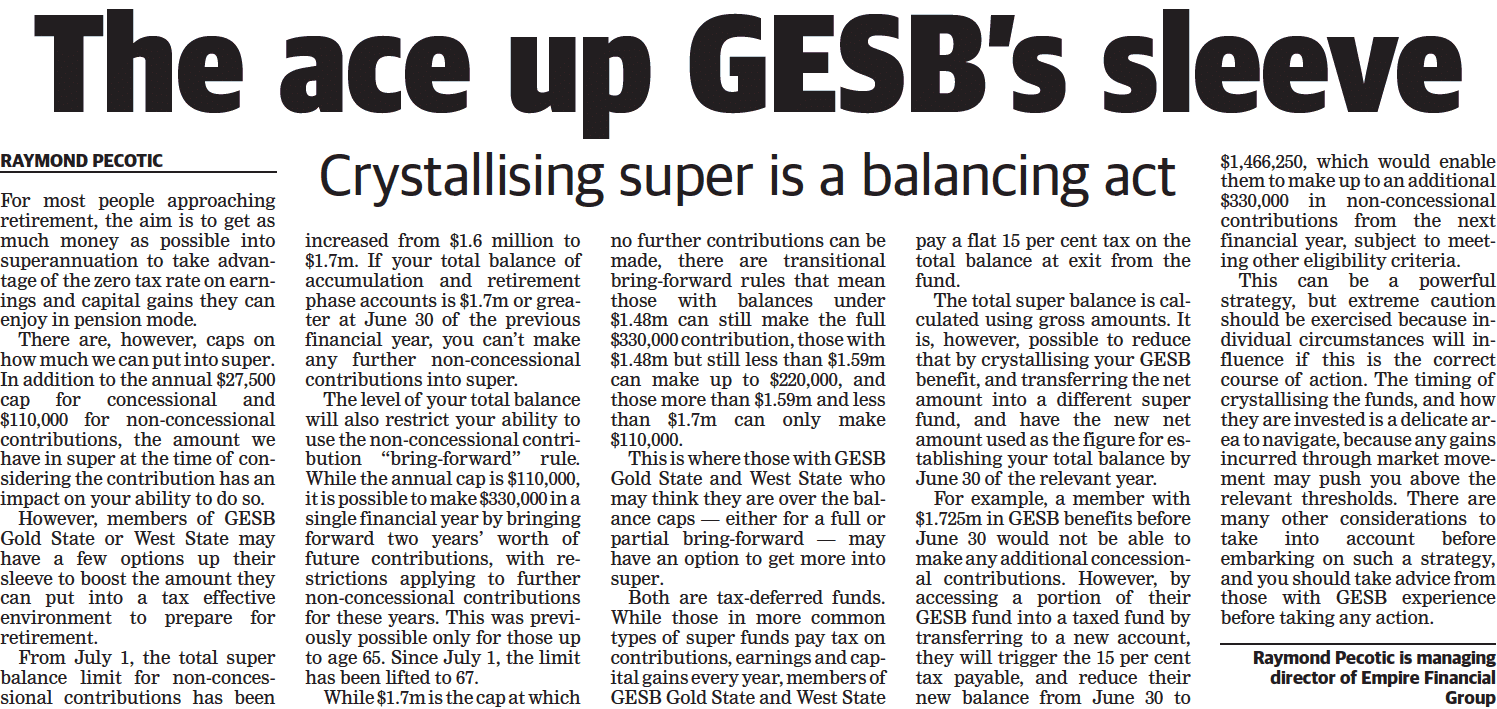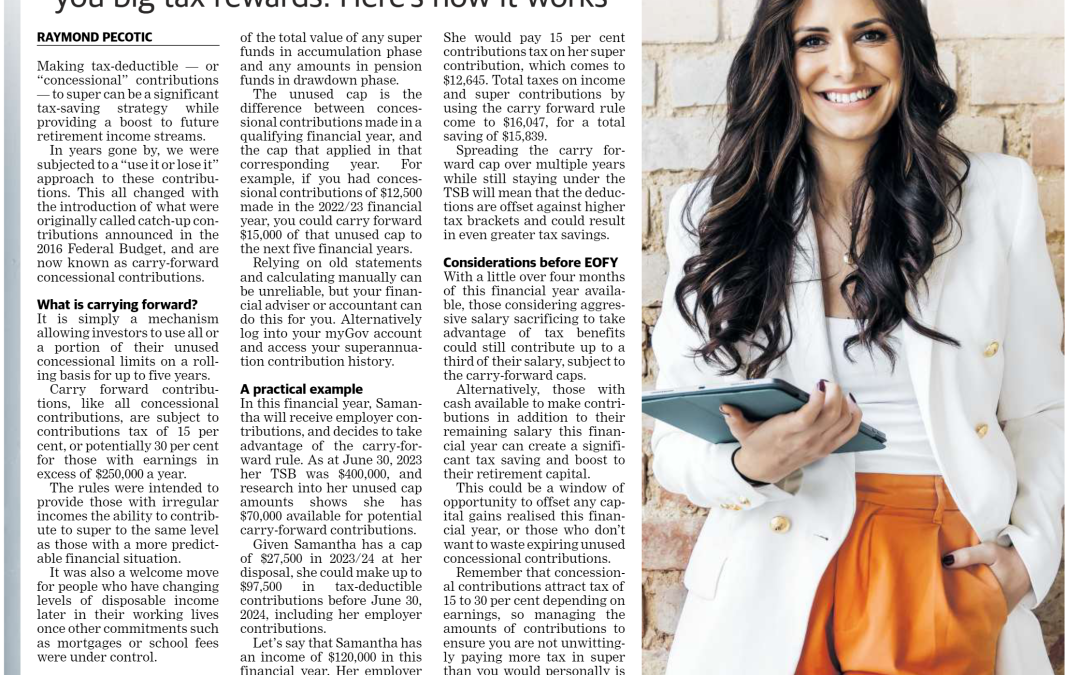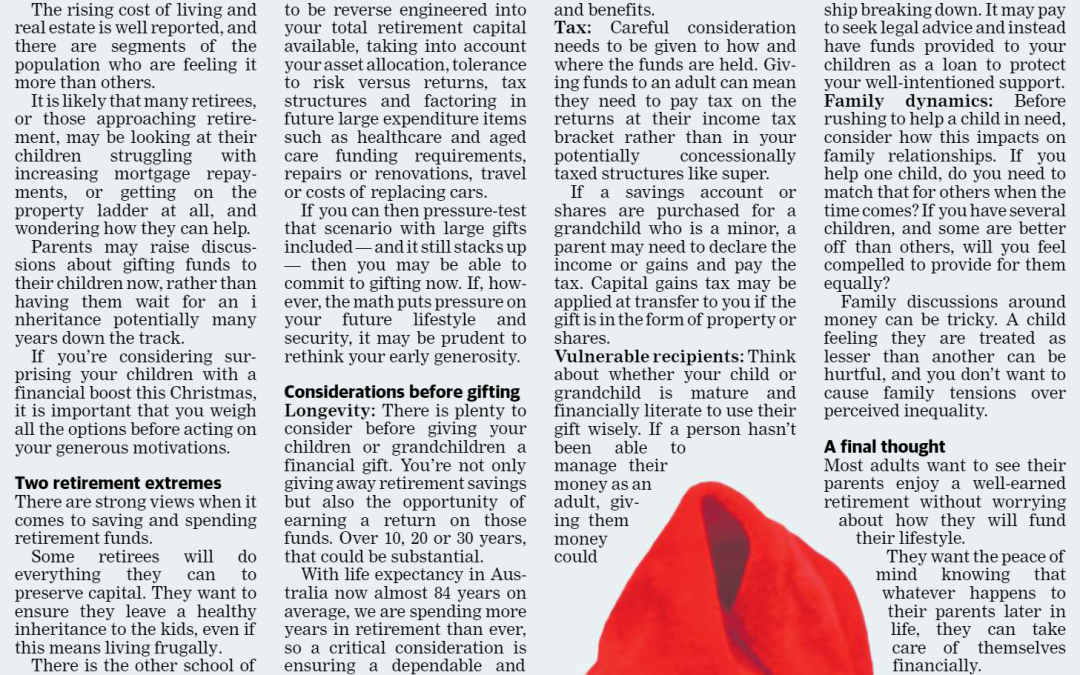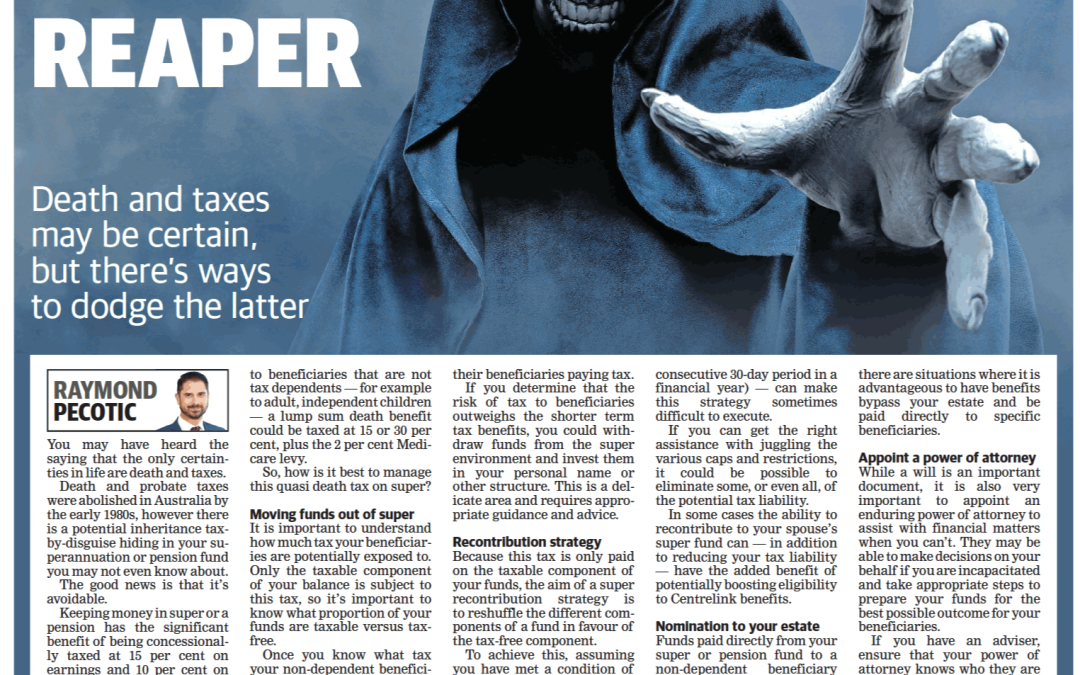This article was first published in The West Australian Newspaper on 9th August, 2021. Written by Raymond Pecotic, Managing Director of Empire Financial Group.
For most people approaching retirement, the aim is to get as much money as possible into superannuation to take advantage of the zero tax rate on earnings and capital gains they can enjoy in pension mode.
There are, however, caps on how much we can put into super. In addition to the annual $27,500 cap for concessional and $110,000 for non-concessional contributions, the amount we have in super at the time of considering the contribution has an impact on your ability to do so.
However, members of GESB Gold State or West State may have a few options up their sleeve to boost the amount they can put into a tax effective environment to prepare for retirement.
From July 1, the total super balance limit for non-concessional contributions has been increased from $1.6 million to $1.7m. If your total balance of accumulation and retirement phase accounts is $1.7m or greater at June 30 of the previous financial year, you can’t make any further non-concessional contributions into super. The level of your total balance will also restrict your ability to use the non-concessional contribution “bring-forward” rule. While the annual cap is $110,000, it is possible to make $330,000 in a single financial year by bringing forward two years’ worth of future contributions, with restrictions applying to further non-concessional contributions for these years. This was previously possible only for those up to age 65. Since July 1, the limit has been lifted to 67.
While $1.7m is the cap at which no further contributions can be made, there are transitional bring-forward rules that mean those with balances under $1.48m can still make the full $330,000 contribution, those with $1.48m but still less than $1.59m can make up to $220,000, and those more than $1.59m and less than $1.7m can only make $110,000.
This is where those with GESB Gold State and West State who may think they are over the balance caps — either for a full or partial bring-forward — may have an option to get more into super.
Both are tax-deferred funds. While those in more common types of super funds pay tax on contributions, earnings and capital gains every year, members of GESB Gold State and West State pay a flat 15 per cent tax on the total balance at exit from the fund.
The total super balance is calculated using gross amounts. It is, however, possible to reduce that by crystallising your GESB benefit, and transferring the net amount into a different super fund, and have the new net amount used as the figure for establishing your total balance by June 30 of the relevant year.
For example, a member with $1.725m in GESB benefits before June 30 would not be able to make any additional concessional contributions. However, by accessing a portion of their GESB fund into a taxed fund by transferring to a new account, they will trigger the 15 per cent tax payable, and reduce their new balance from June 30 to $1,466,250, which would enable them to make up to an additional $330,000 in non-concessional contributions from the next financial year, subject to meeting other eligibility criteria.
This can be a powerful strategy, but extreme caution should be exercised because individual circumstances will influence if this is the correct course of action. The timing of crystallising the funds, and how they are invested is a delicate area to navigate, because any gains incurred through market movement may push you above the relevant thresholds. There are many other considerations to take into account before embarking on such a strategy, and you should take advice from those with GESB experience before taking any action.
Raymond Pecotic is managing director of Empire Financial Group



